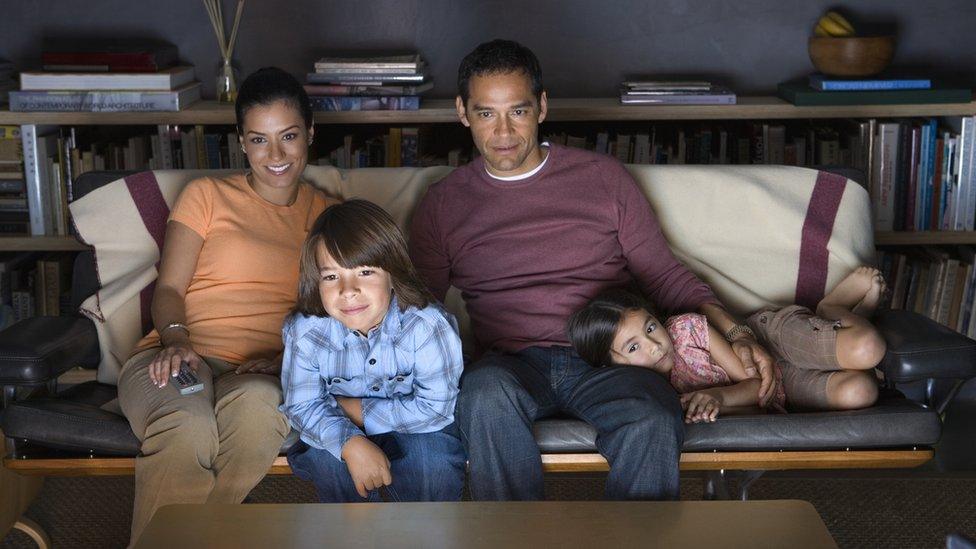More swearing but parents want children protected
- Published

Swearing is increasingly seen as part of adult life, but parents want to keep controls on language on screen
People are increasingly likely to use strong swearing in their everyday life, says research from the British Board of Film Classification (BBFC).
The body, which gives age ratings to films, says about a third of people in the UK are more likely to use strong swear words than five years ago.
But the research found parents did not want age restrictions weakened for swearing in movies and DVDs.
Parents wanted to protect children "for as long as possible" from swearing.
The BBFC also said it would treat acronyms such as "WTF" as though the full swear words had been spelt out, because the meaning was so widely recognised.
Not in front of the children
The report on swearing habits, based on research with 1,000 people, found about six in 10 people saw strong swearing, such as the F-word, as part of everyday life.
A third were more likely to swear than five years ago, but there was a significant "generational divide", with 18 to 34 year olds most likely to swear and to be "desensitised" to its impact.
Among older people, strong swear words still remained a taboo - with 75% of those over 65 saying they would not use strong swearing in public, according to research which included focus groups and in-depth interviews.

What parents thought about swearing:
"My son is exposed to strong language among his peers. I don't want him using it though." Mother of a 10-12 year old.
"My 15 year old son uses swearing among gaming friends casually. It's become a normal form of expression. Even my 13 year old thinks it's okay now, its become so normalised." Mother, aged 31-50
"There's a slippery slope with strong language creeping into films at younger ages. Where do you draw the line and say that's enough?" Female, aged 31-50
"I swear every day around friends. I don't use it in front of new people as I don't want them to get a bad impression of me." Female, aged 31-50
"My kids are 16 and 21 now. They hear strong language on a daily basis when out and about." Father of children aged 16-18.
Source: BBFC

Parents were also keen to keep strong swearing away from their children - with about two thirds of parents saying while they might swear among their own friends they would avoid it if they thought their children, up to the age of 16, could hear.
There was also anxiety among parents about how much swearing could be "normalised" in the online video content available to young people.

Most parents who swore with friends avoided strong language around their children
The context also made a difference, with parents more worried if swearing was used in an aggressive or violent way, with a particular concern if it was used in terms of sexual violence.
The BBFC said the research suggested that while swearing might be increasingly used and tolerated, that parents did not want a dilution of the limits on how it appeared on-screen - such as not having very strong language in a 12A-rated film.
The strongest swear words should be infrequent for a 15 rating and if accompanied with violence they might need an 18 rating, said the BBFC.
"Children are watching more content on multiple screens, and their parents want to protect them from strong and very strong language wherever they can and for as long as possible. Parents told us they are keen for media industries to share the responsibility," said David Austin, the BBFC's chief executive.